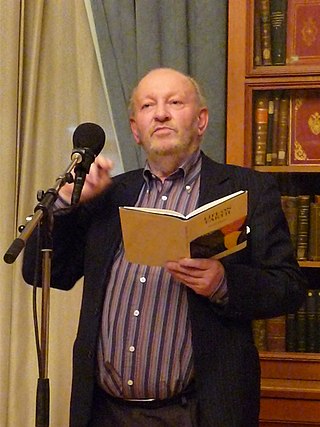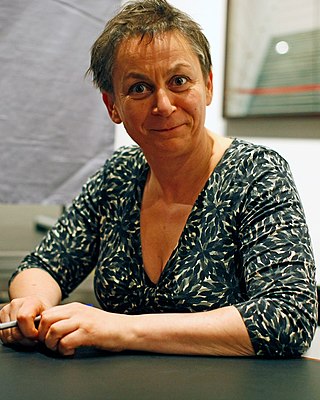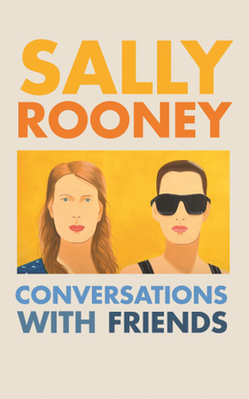Related Research Articles

Seamus Justin Heaney was an Irish poet, playwright and translator. He received the 1995 Nobel Prize in Literature. Among his best-known works is Death of a Naturalist (1966), his first major published volume. American poet Robert Lowell described him as "the most important Irish poet since Yeats", and many others, including the academic John Sutherland, have said that he was "the greatest poet of our age". Robert Pinsky has stated that "with his wonderful gift of eye and ear Heaney has the gift of the story-teller." Upon his death in 2013, The Independent described him as "probably the best-known poet in the world".
Shiva Naipaul, born Shivadhar Srinivasa Naipaul in Port of Spain, Trinidad and Tobago, was an Indo-Trinidadian and British novelist and journalist.
Desmond Hogan is an Irish writer. Awarded the 1977 Rooney Prize for Irish Literature and 1980 John Llewellyn Rhys Prize, his oeuvre comprises novels, plays, short stories and travel writing.
Mary Dorcey is an Irish author and poet, feminist, and LGBT+ activist. Her work is known for centring feminist and queer themes, specifically lesbian love and lesbian eroticism.

James Gordon Farrell was an English-born novelist of Irish descent. He gained prominence for a series of novels known as "the Empire Trilogy", which deal with the political and human consequences of British colonial rule.

Norman Derek Mahon was an Irish poet. He was born in Belfast, Northern Ireland but lived in a number of cities around the world. At his death it was noted that his, "influence in the Irish poetry community, literary world and society at large, and his legacy, is immense". President of Ireland Michael D Higgins said of Mahon; "he shared with his northern peers the capacity to link the classical and the contemporary but he brought also an edge that was unsparing of cruelty and wickedness."
The Rooney Prize for Irish Literature was created in 1976 by the Irish American businessman Dan Rooney, owner and chairman of the NFL Pittsburgh Steelers franchise and former US Ambassador to Ireland. The prize is awarded to Irish writers aged under 40 who are published in Irish or English. Although often associated with individual books, it is intended to reward a body of work. Originally worth £750, the current value of the prize is €10,000.
Dermot Healy was an Irish novelist, playwright, poet and short story writer. A member of Aosdána, Healy was also part of its governing body, the Toscaireacht. Born in Finea, County Westmeath, he lived in County Sligo, and was described variously as a "master", a "Celtic Hemingway" and as "Ireland's finest living novelist".
Keith Ridgway is an Irish novelist. An author, he has been described as "a worthy inheritor" of "the modernist tradition in Irish fiction".
Philip Ó Ceallaigh is an Irish short story writer and translator who lives in Bucharest.
Colum McCann is an Irish writer of literary fiction. He was born in Dublin, Ireland, and now lives in New York. He is the co-founder and President of Narrative 4, an international empathy education nonprofit. He is also a Thomas Hunter Writer in Residence at Hunter College, New York. He is known as an international writer who believes in the "democracy of storytelling." Among his numerous honors are the U.S National Book Award, the Dublin Literary Prize, several major European awards, and an Oscar nomination.

The Stinging Fly is a literary magazine published in Ireland, featuring short stories, essays, and poetry. It publishes two issues each year. In 2005, The Stinging Fly moved into book publishing with the establishment of The Stinging Fly Press. The magazine has been described as "something of a revelation in Irish literature" by The New York Times.

Claire Keegan is an Irish writer known for her short stories, which have been published in The New Yorker, Best American Short Stories, Granta, and The Paris Review.

Anne Teresa Enright is an Irish writer. The first Laureate for Irish Fiction (2015–2018) and winner of the Man Booker Prize (2007), she has published eight novels, many short stories, and a non-fiction work called Making Babies: Stumbling into Motherhood, about the birth of her two children. Her essays on literary themes have appeared in the London Review of Books and The New York Review of Books, and she writes for the books pages of The Irish Times and The Guardian. Her fiction explores themes such as family, love, identity and motherhood.

That part of the United Kingdom called Northern Ireland was created in 1922, with the partition of the island of Ireland. The majority of the population of Northern Ireland wanted to remain within the United Kingdom. Most of these were the Protestant descendants of settlers from Great Britain.
Claire Kilroy is a contemporary Irish author. She was born, and currently resides, in Dublin, Ireland.

Sally Rooney is an Irish author and screenwriter. She has published four novels: Conversations with Friends (2017), Normal People (2018), Beautiful World, Where Are You (2021), and Intermezzo (2024). The first two were adapted into the television miniseries Normal People (2020) and Conversations with Friends (2022).

Conversations with Friends is the 2017 debut novel by the Irish author Sally Rooney, about two young women who become involved with an older couple in Dublin's literary scene. The novel was published by Faber and Faber and received critical acclaim. A television adaptation, also called Conversations with Friends, was released in 2022.
Caitríona Lally is an Irish writer. She has published two novels: Eggshells (2017) and Wunderland (2021). In 2018 she was awarded the Rooney Prize for Irish Literature.
Thomas Morris is a Welsh writer and editor. He was born and raised in Caerphilly and was educated in the Welsh language all through primary and secondary school. He worked for Welsh TV channel S4C for a period and was a trialist for Cardiff City F.C. He then moved to Ireland where he studied English and Philosophy at Trinity College Dublin, where he became chairperson of the Literary Society. During this time he became friends with, and an early editor of, Sally Rooney who described him as "the source of all her good writing advice". He is also a graduate of the University of East Anglia's MA in creative writing programme.
References
- ↑ "Philip MacCann". British Council . Retrieved 15 August 2014.
- ↑ Robert O'Byrne, "With a swansong in her Hart", Irish Times, 17 June 1995
- ↑ James Wood, The Guardian, Book of the Day: "Becalmed Writing from a Stagnant Pool". 1992
- ↑ "Tomorrow's Worldbeaters", Robert McCrum, The Observer Review, 20 June 1999.
- ↑ David Buckley, The Observer, January 1995.
- ↑ Lisa Tuille, Time Out, 18–15 January 1995.
